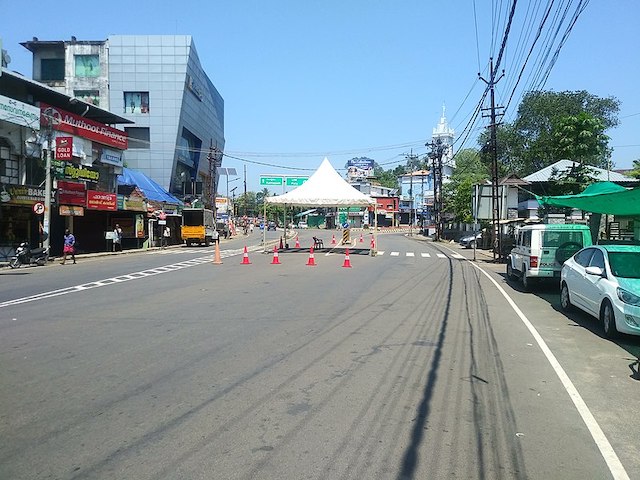According to the World Health Organization (WHO), COVID-19 claimed the lives of 4.7 million Indians in 2020 and 2021. This is over ten times the figure supplied by the Indian government, which was half a million.
What is Excess Mortality and why is it a significant factor?
Excess mortality associated with COVID-19 is used to quantify the direct and indirect impacts of the pandemic. ‘Excess mortality’ is defined as the difference between the total number of deaths that have occurred and the number of deaths that would have been expected in the absence of the pandemic i.e. a no-COVID-19 scenario.
– Excess mortality includes deaths attributable directly to COVID-19 that were counted and reported to WHO by countries.
– It also includes deaths attributable directly to COVID-19 that were not counted or reported by countries.
– It also includes deaths indirectly associated with COVID-19, due to other causes and diseases, resulting from the wider impact of the pandemic on health systems and society.
– It is minus any deaths that would have occurred under normal circumstances but were averted due to pandemic-related changes in social conditions and personal behaviors e.g. less traffic deaths or influenza deaths due to local lockdowns and less travel.
The monitoring of excess mortality provides us with a more comprehensive understanding of the impact of COVID-19 beyond the number of COVID-19 deaths reported by countries. The World Health Organization (WHO) is tracking global excess mortality as the pandemic evolves over time to reveal a picture of its full impact and burden on countries, health systems and individuals.
Excess Mortality Across the Globe
India is also one of 20 countries that are expected to account for more than 80% of worldwide excess mortality from January 2020 to December 2021. They account for nearly half of the world’s population. The other 19 countries are Brazil, Colombia, Egypt, Germany, Indonesia, Iran, Italy, Mexico, Nigeria, Pakistan, Peru, the Philippines, Poland, the Russian Federation, South Africa, the United Kingdom, Turkey, Ukraine and the United States.
COVID-19 has killed about 15 million lives worldwide in the last two years, according to the WHO. Through May 4, a total of 6,243,038 deaths have been reported to WHO by countries throughout the world. The WHO estimates that the number is three times higher. It also means that one out of every three COVID-19 deaths occurred in India.
The WHO areas of South-East Asia, Europe, and the Americas accounted for nearly all of the 15 million deaths (84%) with just ten nations accounting for 68 percent of the extra deaths.
The figure is highest in lower-middle income countries, where more than half (53 per cent) the 14.9 million excess deaths took place. This is followed by upper-middle income countries (28 per cent), high-income (15 per cent) and low-income countries (four per cent).
“These sobering data not only point to the impact of the pandemic but also to the need for all countries to invest in more resilient health systems that can sustain essential health services during crises, including stronger health information systems,” Tedros Adhanom Ghebreyesus, WHO director-general, said, while releasing the report.
“WHO is committed to working with all countries to strengthen their health information systems to generate better data for better decisions and better outcomes,” he added.
India’s Reaction
“India strongly objects to the use of mathematical models for projecting excess mortality estimates in view of the availability of authentic data,” a statement by the government said.
“Despite India’s objection to the process, methodology and outcome of this modelling exercise, WHO has released the excess mortality estimates without adequately addressing India’s concerns,” it added.
“India had also informed WHO that in view of the availability of authentic data published through Civil Registration System (CRS) by the Registrar General of India, mathematical models should not be used for projecting excess mortality numbers for India,” it noted.
The government said the validity and robustness of the models used and methodology of data collection were “questionable”.
The government had expressed its objections earlier too.
“It is not clear why Global Health Estimates 2019 has been used for estimating expected deaths figures for India. For the tier-1 countries such as the United States, France and Germany, their own historical datasets were used. It was repeatedly highlighted that India has a robust system of data collection and management,” a statement released by the government April 16, had said.
“One-size-fits-all approaches and models, which are true for smaller countries like Tunisia, may not be applicable to India with a population of 1.3 billion,” it had added.


